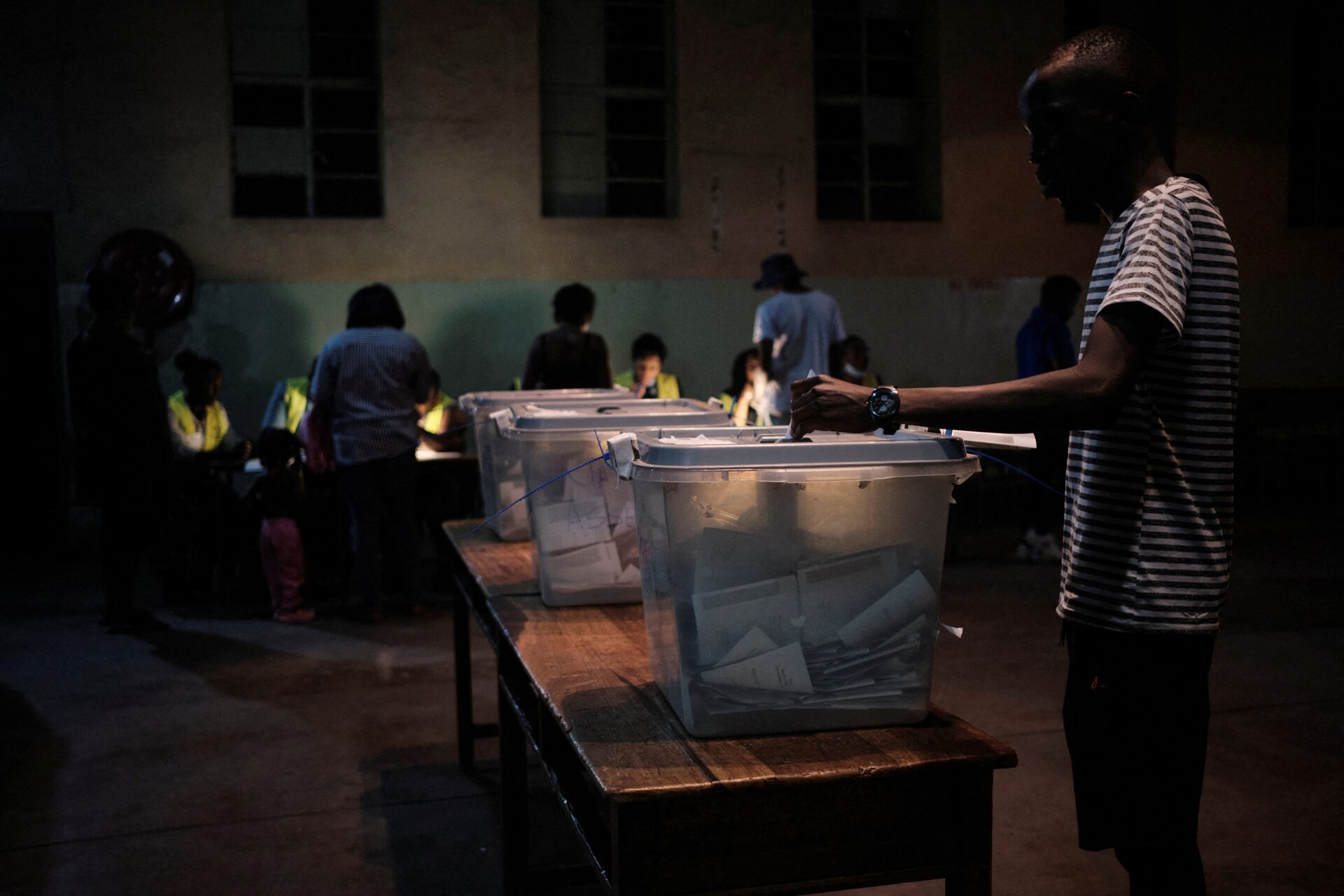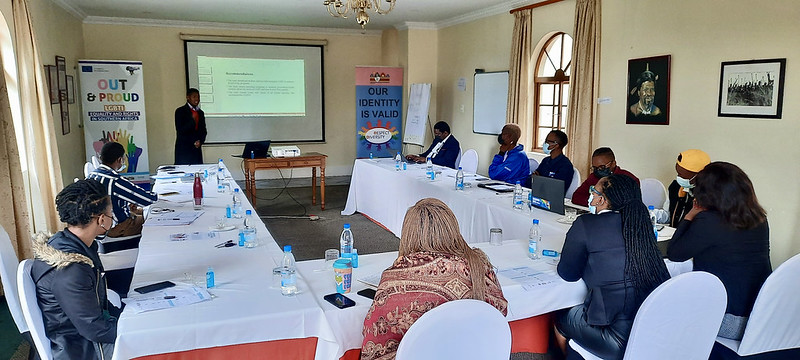Zimbabwe: Concerns Raised over Civic Space Restrictions and Political Participation
Published on 11 Mar 2025, 04:55 PM
The Human Rights Committee reviewed the Zimbabwean State on its ICCPR implementation after 27 years of silence
 Election campaign rally by Emmerson Mmangagwa in Uzumba, Maramba, Zimbabwe, 5 August 2023. Author: Aaron Ufumeli/EPA-EFE
Election campaign rally by Emmerson Mmangagwa in Uzumba, Maramba, Zimbabwe, 5 August 2023. Author: Aaron Ufumeli/EPA-EFE
On 6 and 7 March 2025, Zimbabwe appeared before the UN Human Rights Committee to present its second periodic report on the implementation of the ICCPR, marking its first review since 1998. Led by Deputy Minister of Justice Robert Majungunye, the Zimbabwean delegation outlined a number of legislative and institutional reforms meant to align the country's legal framework with international human rights standards. Among the achievements highlighted were the abolition of the death penalty through the Death Penalty Abolition Act (2024), reforms to enhance electoral inclusivity—including expanded parliamentary quotas for women and youth—and the adoption of the Freedom of Information Act to promote transparency and freedom of expression. Zimbabwe also pointed to judicial reforms, such as court decentralization and electronic case management systems, as efforts to improve access to justice.
Concerns over Shrinking Civic Space and Repression of Dissent
The Committee focused particular attention on laws and practices restricting civic space, noting that despite constitutional guarantees, fundamental freedoms of expression, assembly, and association remain under severe strain. The Patriot Act, which criminalizes acts deemed to "injure the sovereignty and national interest of Zimbabwe"—with penalties including loss of citizenship and voting rights—was flagged as having a chilling effect on dissent and public debate. The Committee also raised concerns over the Maintenance of Peace and Order Act (MOPA), reportedly used to suppress peaceful protests and public gatherings, and the Private Voluntary Organizations (PVO) Amendment Bill, which grants the government broad powers to interfere in the work of civil society organizations, particularly those working on human rights and governance issues. Further concerns were expressed about the continued harassment and arbitrary arrests of political opponents, activists, journalists, and human rights defenders, often on vague charges or without due process.
In response, Zimbabwe's delegation defended these laws as necessary tools to ensure national security, public order, and transparency, arguing that the PVO Bill is primarily intended to prevent money laundering and terrorism financing in line with international obligations. They firmly denied any policy of targeting civil society, journalists, or opposition figures, insisting that all arrests are based on law and evidence and that the judiciary remains independent in adjudicating bail and other legal processes. While acknowledging that some laws still require alignment with the 2013 Constitution, the delegation stated that significant progress has been made, with only 15 out of 204 laws pending alignment.
Concerns about Electoral Process and Political Participation
 Voter casting his ballot in Luveve township, Bulawayo, Zimbabwe, 2023. Author: Reuters/KB Mpofu
Voter casting his ballot in Luveve township, Bulawayo, Zimbabwe, 2023. Author: Reuters/KB Mpofu
A major focus of the Committee’s review was on the integrity and fairness of Zimbabwe’s electoral process, especially in light of the 2023 harmonized elections. Although Zimbabwe’s Constitution guarantees key political rights, the Committee expressed concern that, in practice, various legal and institutional obstacles continue to hinder free and fair participation. Among these were the selective use of − again − the MOPA and Section 22A of the Criminal Code, intimidating political opponents and activists.
The Committee also questioned the independence of the Zimbabwe Electoral Commission (ZEC), noting that its regulations require approval from the Minister of Justice and that ZEC is barred from accessing external funding, both of which undermine its autonomy. In addition, the absence of campaign finance regulations was identified as a serious flaw in Zimbabwe's electoral framework, creating an uneven playing field and limiting transparency regarding political party financing.
The Committee further pointed to worrying reports of voter intimidation, especially in rural areas, arrests of election observers, and bias in public media coverage favoring the ruling party, all of which undermine the credibility of the electoral process.
In reply, the State delegation defended the existing legal framework, arguing once again that laws like MOPA are needed to maintain public order and do not impede lawful political activity. They emphasized that ZEC’s limited access to foreign funding is intended to prevent undue external influence, and that ministerial oversight of ZEC regulations is part of Zimbabwe’s broader legislative process involving Parliament. On the issue of campaign finance, Zimbabwe admitted that reforms are necessary but remain pending, offering no clear timeline for their adoption.
Watch the review session again here (Day 1) and here (Day 2).
Disclaimer: Transcripts of the dialogue available here powered by WIPO Speech-to-Text served as the main source of the presented article. While all the information was carefully checked, please refer to the audio or UN WebTV for an official version of the dialogue.
Recommendations of the Human Rights Committee
The Concluding Observations on Zimbabwe's second periodic report were released on 28th March 2025. The State party is requested to provide, by 28th March 2028, information on the following recommendations:
Death Penalty:
The State Party should:
(a) Repeal clause 7 of the Death Abolition Act, which amends the Defence Act Chapter [11:02];
(b) Consider acceding to the Second Optional Protocol to the Covenant, aiming at the abolition of the death penalty; (c) Commute all death sentences to terms of imprisonment and ensure that all persons entitled to a rehearing have timely access to legal aid to prepare and present mitigating evidence.
Freedom of Expression:
The State Party should:
(a) Take immediate steps to ensure that everyone can exercise the right to freedom of expression without interference and that any restrictions on the exercise of that right are in conformity with the strict requirements of article 19 (3) of the Covenant;
(b) Amend the Public Order and Security Act and the Criminal Law (Codification and Reform) Act to eliminate criminal penalties for journalists exercising their rights under the Covenant;
(c) Combat and prevent all forms of threats, harassment, intimidation, and violence against journalists, media workers, and human rights defenders, and take all measures necessary to ensure that they are free to carry out their work without fear of violence or reprisals of any kind;
(d) Ensure that all human rights violations against journalists, media workers, and human rights defenders are thoroughly, impartially, and independently investigated, that perpetrators are brought to justice and, if found guilty, duly punished, and that victims receive adequate reparation;
(e) Amend the provisions of the Broadcasting Services Act governing the grant of licences into full compliance with the Covenant and establish an independent broadcasting licensing authority with the power to examine broadcasting applications and grant licences in accordance with reasonable and objective criteria.
Freedom of Association:
The State Party should:
(a) Consider abandoning the enactment of the Private Voluntary Organization Bill and returning the Bill to Parliament. It should also prepare a consolidated version of the bill and convene wide consultations with relevant stakeholders to align the Bill with the Constitution and international standards, including the protection of the right to freedom of association;
(b) Repeal the provisions of section 22 A of the Criminal Law (Codification and Reform) Amendment Act of 2022 that impede the exercise of fundamental rights and freedoms provided in the Constitution of the State Party and the Covenant.
Here, you can find all the recommendations given by the Committee in the Concluding Observations.
The follow-up report of Zimbabwe on the implementation of recommendations is due in 2028. The next list of issues will be adopted in 2031, and the next periodic report is due in 2033.
 Election campaign rally by Emmerson Mmangagwa in Uzumba, Maramba, Zimbabwe, 5 August 2023. Author: Aaron Ufumeli/EPA-EFE
Election campaign rally by Emmerson Mmangagwa in Uzumba, Maramba, Zimbabwe, 5 August 2023. Author: Aaron Ufumeli/EPA-EFE



